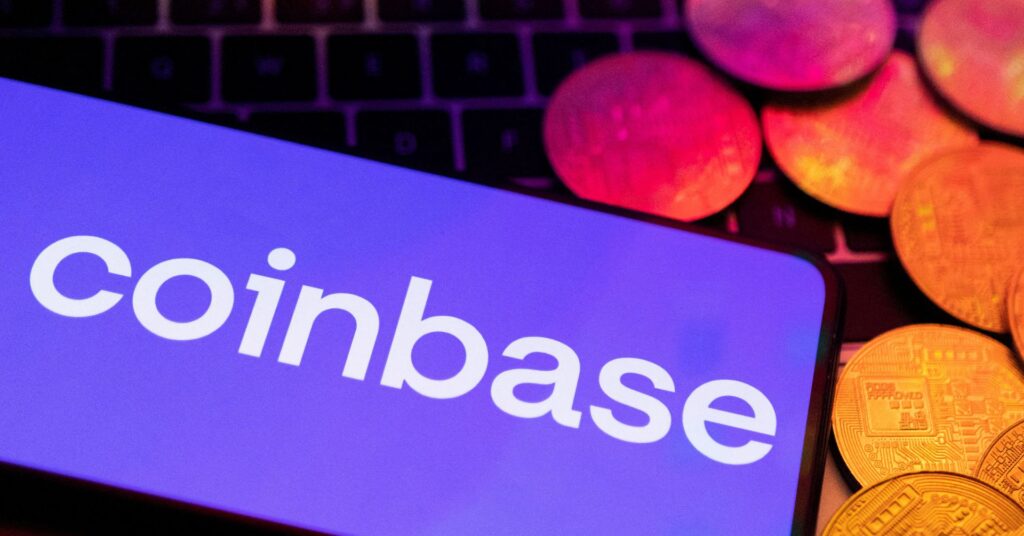
Coinbase’s Chief Legal Officer, Paul Grewal, recently appeared in an interview to discuss the SEC’s lawsuit against the firm. Grewal argues that the lawsuit lacks merit and explains that the SEC’s job was to ensure proper disclosures, not to question the company’s business merits. He highlights the thorough review process conducted by the SEC before Coinbase was permitted to go public, emphasizing the agency’s responsibility to consider the protection of investors. Grewal also addresses the expansion plans of Coinbase, noting the company’s global presence and commitment to complying with regulatory climates in every country they operate in. Despite the regulatory pushback in the United States, Grewal expresses optimism about the future of cryptocurrency and the market’s response to the growing demand for safe and regulated financial products.
Argument 1: SEC’s Job and Coinbase’s Disclosures Before IPO
SEC’s role in disclosing information
The Securities and Exchange Commission (SEC) plays a critical role in the US financial system by ensuring transparency and protecting investors. One of their primary responsibilities is to require companies planning to go public to disclose all relevant information to potential investors. Coinbase, the leading cryptocurrency exchange, went through an exhaustive review process by the SEC before their initial public offering (IPO). This rigorous examination demonstrates the SEC’s commitment to thorough due diligence and their dedication to ensuring that accurate and comprehensive information is provided to the public.
Coinbase’s exhaustive review by the SEC
Coinbase’s IPO process involved extensive scrutiny from the SEC. The company had to provide detailed information about their business model, financials, risk factors, and regulatory compliance. The SEC thoroughly reviewed Coinbase’s operations, procedures, and policies to ensure compliance with the applicable laws and regulations. This level of scrutiny showcases Coinbase’s commitment to transparency and the SEC’s dedication to protecting investors. Coinbase’s willingness to cooperate fully with the SEC’s review process should be viewed as a positive sign of their commitment to providing accurate and reliable information to the public.
Argument 2: SEC’s Permitted Listing and Mandate
Specific statutory mandate
The SEC has a specific statutory mandate to facilitate the capital formation process while also ensuring investor protection. As part of this mandate, the SEC has the authority to permit companies to list their securities on public exchanges. Coinbase’s successful listing on a major US stock exchange demonstrates that the SEC has thoroughly evaluated their application, reviewed their disclosures, and determined that the company meets the necessary requirements for public listing. The SEC’s decision to permit Coinbase’s listing is a testament to their confidence in the company’s transparency and compliance with the regulatory framework.
SEC’s duty to consider public interest and investor protection
The SEC is entrusted with the responsibility to consider the public interest and protect investors. In the case of Coinbase’s IPO, the SEC conducted a comprehensive review to ensure that the company’s operations align with investor protection standards. By permitting Coinbase’s listing, the SEC is signaling their confidence that the company’s operations are in the best interest of the public and that appropriate measures have been taken to safeguard investors. The SEC’s role in evaluating and permitting listings is crucial in maintaining the integrity of the financial markets and protecting investors from potential risks.

This image is property of i.ytimg.com.
Argument 3: Coinbase’s Business Model and Token Listings
Coinbase’s business model consistency since IPO
Coinbase has maintained a consistent business model since its IPO, focusing on providing a reliable and secure platform for users to buy, sell, and store cryptocurrencies. The company generates revenue from transaction fees, custody services, and other related activities. Throughout its operations, Coinbase has demonstrated a commitment to compliance with applicable laws and regulations, which enhances investor confidence and promotes trust in the cryptocurrency market. The consistency in Coinbase’s business model reaffirms their commitment to transparency and reinforces the SEC’s confidence in the company.
Rigorous vetting process for token listings
Coinbase has implemented a rigorous vetting process for the listing of new tokens on its platform. The process involves a comprehensive evaluation of a token’s technology, security, compliance with regulations, and alignment with Coinbase’s strategic goals. This thorough evaluation ensures that only reputable and compliant tokens are listed, reducing the risk of fraud or market manipulation. Coinbase’s commitment to maintaining strict listing standards aligns with the SEC’s mission to protect investors and promote fair, transparent, and efficient markets.
Argument 4: Coinbase’s Global Operations and Expansion
Operating as a global business
Coinbase operates as a global cryptocurrency exchange, serving customers from around the world. The company’s global reach indicates its ability to navigate and comply with diverse regulatory frameworks in different jurisdictions. Coinbase’s experience and success in operating across borders demonstrate their commitment to adhering to regulatory requirements worldwide, including those imposed by the SEC.
Considering regulatory climate in other jurisdictions
In addition to complying with US regulations, Coinbase takes into account the regulatory climate in other jurisdictions where it operates. The company actively engages with regulators, develops relationships, and adjusts its operations to meet local requirements. Coinbase’s proactive approach to regulatory compliance not only ensures the company’s long-term success but also underscores its commitment to operating within the rules and regulations set forth by regulatory authorities.

This image is property of assets.bwbx.io.
Argument 5: Adoption of Sensible Rules in Other Countries
Countries adopting regulations for crypto
Numerous countries around the world have recognized the need for regulations to govern cryptocurrency-related activities. Countries such as Japan, Switzerland, and Singapore have implemented sensible rules and frameworks that provide clarity and foster innovation in the crypto space while also ensuring investor protection. These countries have experienced positive outcomes from their regulatory approach, including increased investor confidence, market stability, and the attraction of cryptocurrency-related businesses.
US falling behind in crypto regulations
While other countries have embraced cryptocurrency regulations, the United States has fallen behind in creating a comprehensive regulatory framework. This lag in regulatory clarity puts US companies at a disadvantage and limits innovation within the country. By adopting sensible rules, the US can facilitate the growth of the cryptocurrency industry, attract investment, and provide a safer environment for both companies and investors.
Argument 6: Confidence in Approval of Spot ETF
Market responding to American demand for regulated products
The market has witnessed growing demand from American investors for regulated cryptocurrency products. Institutions and retail investors alike are seeking exposure to cryptocurrencies through secure and regulated investment vehicles. This demand has prompted companies, including Coinbase, to introduce products such as spot exchange-traded funds (ETFs) that provide investors with indirect exposure to cryptocurrencies without the complexities of direct ownership.
Confidence in approval of spot ETF
Given the market demand for regulated cryptocurrency products and Coinbase’s track record of cooperation and compliance, there is a strong likelihood that the SEC will approve spot ETFs. The SEC’s mission to protect investors and facilitate capital formation aligns with the benefits that spot ETFs can offer to the American public. Approving spot ETFs would provide investors with a safe and regulated avenue to invest in cryptocurrencies, further solidifying the SEC’s commitment to investor protection and market integrity.

This image is property of www.ft.com.
Argument 7: Americans’ Desire for Safe and Regulated Products
Americans’ interest in cryptocurrency
The interest and participation of Americans in the cryptocurrency market have surged in recent years. Cryptocurrencies, such as Bitcoin and Ethereum, have gained mainstream recognition and represent an asset class that many Americans are keen to explore. However, concerns regarding security, fraud, and market manipulation have deterred some individuals from fully participating in the market.
Urgency for safe and regulated financial products
The desire for safe and regulated financial products is evident among American investors. By approving and facilitating the availability of regulated products, such as spot ETFs, the SEC can fulfill the public’s demand for safer investment alternatives. Providing access to regulated products would not only protect investors but also encourage more widespread participation in the cryptocurrency market, fostering financial inclusion and empowering individuals to take advantage of the benefits offered by cryptocurrencies.
Argument 8: Challenges in Accessing Crypto Products
Barriers hindering access to crypto products
Despite the increasing interest in cryptocurrencies, there are significant barriers that hinder access to crypto products for many individuals. These barriers range from technological complexities and lack of education to limited availability of regulated investment options. The absence of easily accessible and trustworthy investment vehicles prevents many potential investors from entering the cryptocurrency market.
Standing in the way of public demand
The persistence of barriers to accessing crypto products stands in the way of meeting the public demand for these assets. By facilitating the availability of regulated products, such as spot ETFs, the SEC can address these barriers and create a safer and more inclusive investment environment. Breaking down these barriers will enable a wider range of individuals to participate in the cryptocurrency market while also ensuring that they are protected through the SEC’s oversight.

This image is property of www.reuters.com.
Argument 9: Importance of Crypto in Financial Upgrade
Crypto as an integral part of financial future
Cryptocurrencies have emerged as an integral part of the future of finance. The benefits offered by blockchain technology, such as decentralization, transparency, and efficiency, have the potential to revolutionize various sectors, including banking, payments, and cross-border transactions. People’s increasing reliance on digital transactions and the growing interest in decentralized finance (DeFi) highlight the importance of cryptocurrencies in upgrading the existing financial system.
Response to public desire for upgraded financial services
By embracing cryptocurrencies and creating a conducive regulatory environment, the SEC can respond to the public’s desire for upgraded financial services. Regulated cryptocurrency products, such as spot ETFs, provide individuals with opportunities for diversification and exposure to innovative assets that have the potential for significant growth. Recognizing the importance of cryptocurrencies and working towards their integration into the financial system will allow the SEC to serve the public’s evolving financial needs.
Conclusion
Summary of arguments
In conclusion, the SEC’s thorough review and approval of Coinbase’s IPO demonstrate the SEC’s commitment to transparency and investor protection. Coinbase’s consistent business model, strict listing standards, and global operations further showcase their dedication to compliance and regulatory adherence. The adoption of sensible regulations in other countries highlights the United States’ need to catch up and provide a comprehensive regulatory framework that fosters innovation and protects investors.
Asserting lack of merit in SEC lawsuit
The SEC’s recent lawsuit against Coinbase appears to lack merit, considering the company’s commitment to compliance, cooperation with regulators, and dedication to providing safe and regulated financial products. The SEC should recognize the public’s demand for these products, which can foster financial inclusion and upgrade the existing financial system. By working together, Coinbase and the SEC can pave the way for a secure and vibrant cryptocurrency market that benefits both investors and the broader economy.



